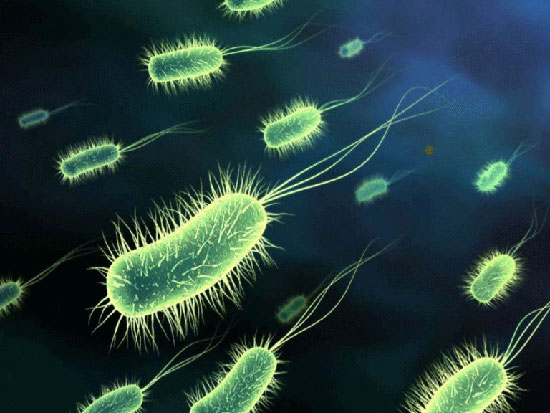Identify herbivores, eat meat through intestinal bacteria
On the Serengeti plains, scientists can tell which animals eat grass or animals that have eaten the poor antelope, all depending on the presence of a specific type of bacteria in the intestinal tract of animals.
What mammals have eaten can be determined by their intestinal bacteria and what functions those bacteria take, according to the results of this study published in the journal Science magazine published May 20, 2011, by international researchers. The presence of specific beneficial bacteria in the intestines of animals has helped turn meat or plants into nutrients, which helps us distinguish: herbivores and predators , according to researchers.
" These are fundamental functions ," said Martin Blaser, a microbiologist who works at New York University in the United States, who is not involved in the study. " It helps to define the macro rules that govern these fundamental functions ."

Food also plays an important role in transforming beneficial bacteria in the intestine
During the study, the researchers classified the bacteria from the feces of 33 mammals and looked closely at the genes of the microbes: About 1,500 pieces of the gene seem to be encoding enzymes, 495 are attached. with herbivores that belong to herbivores like unfortunate gazelles, or carnivores like lions. The beneficial bacteria in the intestines of herbivores and carnivores may be different, but apparently they have different working functions determined by the diet of animals, according to Jeffrey Gordon, co-worker. fake, and a system biologist at Washington University, St Louis, USA.
The intestinal beneficial bacteria of carnivores that carry genes seem to be suitable for the conversion of abundant amino acids in the host's diet. In contrast, beneficial bacteria in the intestines of herbivores, seem to be improving the recombination of new amino acids from the original mixed plants. The model may be reasonable with the lion's protein-rich diet and a low protein diet of gazelles, according to Brian Muegge, co-author of the study, who also works at Washington University. , St Louis, USA. For herbivores, " bacteria must synthesize amino acids to maintain life ," says Brian Muegge.
Proteins and other nutrients also play an important role in converting beneficial bacteria in the gut, Gordon added. The results of the study, published online in the journal Science on May 19, 2011, Gordon and his colleagues took 10 beneficial bacteria in the human gut and introduced them into the intestines of experimental mice. . By precisely adjusting the ratio of nutrients present in the rat's diet, the team was able to see that 60% of the bacteria turned into beneficial bacteria in the mouse intestine.
Through research: Beneficial bacteria in animal intestines can really be a tool to improve people's health, Gordon said. " At the time of the issue of nutrition is a top concern in global health issues ," Gordon added, " how do we make more relevant and useful announcements when we offer What foods should we eat? "
However, there are no clear conclusions about what microbial communities, the different types of bacterial strains of the same species, will yield the best clinical results, according to David Relman, a home Research in infectious diseases at Stanford University, USA. Although the general rule has been raised, in this study it is possible to help scientists when they delve into the study, Relman added, " there are details that we have avoided mentioning further when observing. these specimens. "
- 'Hack' intestinal bacteria of cows can bring more meat and reduce pollution
- This seemingly harmless bacterium killed one third of the world's population
- Detecting intestinal bacteria helps to lose weight
- Climate change creates many intestinal bacteria
- Discover more types of beneficial bacteria in the intestinal tract
- Feces of newborns - abundance of bacteria!
- How does food strongly affect the intestinal tract?
- 6 natural colon cleansing methods
- Create a robot that simulates intestinal bacteria
- Are bacteria making you hungry?
- Exploiting energy from intestinal bacteria
- Find out how to identify resistant bacteria in minutes
 Animal 'suffering' after hibernation
Animal 'suffering' after hibernation Why do goats climb well?
Why do goats climb well? Scientists were surprised to see chimpanzees eating turtles
Scientists were surprised to see chimpanzees eating turtles Giant catfish died deadly due to drought in Thailand
Giant catfish died deadly due to drought in Thailand